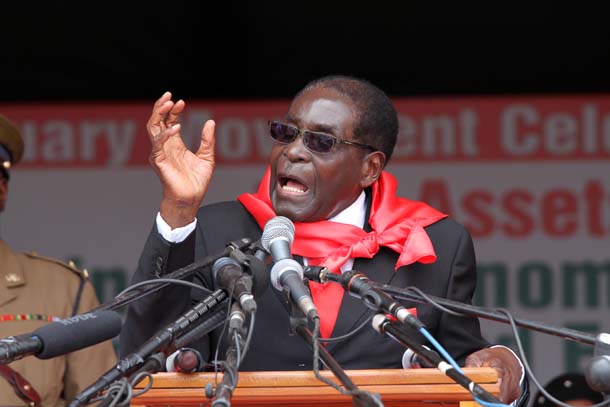
The reported coup in Lesotho has put President Robert Mugabe’s Sadc leadership on the spot. Can Zimbabwe do any less to restore a democratically elected government next door than Sadc did to put a feudal Zanu PF monarch back on the throne in the country over the last 14 years?
Prime Minister Thomas Thabane, a staunch Mugabe supporter, skipped the country to South Africa on Saturday, and Deputy Prime Minister Mothetjoa Metsing told the world tensions have been high since Thabane made a “unilateral” decision to dissolve parliament.
He was in June warned by South Africa after suspending parliament in what appeared to be an attempt to dodge a no-confidence vote. Perhaps, SA will play a huge role than the whole of Sadc in this case.
Interestingly, news reports indicated that some members of Lesotho’s military are loyal to Metsing, instead Thabane. A lot for Sadc to chew – isn’t it?
That Mugabe, still smarting from the debatable July 31 2013 election victory, now finds himself in charge of Sadc at this particular moment is unfortunate as it comes when Metsing is now running Lesotho.
Although no one was claiming leadership in Lesotho, South African government said the military’s actions have the markings of a putsch.
Yet, Zimbabwe is still tongue-tied, perhaps because of its past shenanigans especially in the 2002 and 2008 elections.
That is why it is by no means clear that Sadc has the stomach, will, political support for pushing a multilateral intervention to oust the coup leaders and restore the democratically elected Thabane – if no other option works.
- Chamisa under fire over US$120K donation
- Mavhunga puts DeMbare into Chibuku quarterfinals
- Pension funds bet on Cabora Bassa oilfields
- Councils defy govt fire tender directive
Keep Reading
Mugabe could be hoping that his leadership will not ever have to face that question. Its time those in the region dreaming of copying the coup plotters know that Sadc is united to defend democracy and that the Lesotho junta is illegitimate. This junta must be treated as a pariah throughout the region, without assistance, without friends and without any future.
This coup must not succeed.
Sadly, the mountainous kingdom, surrounded by South Africa, has repeatedly been beset by political instability since gaining independence in 1966. And a peaceful election in 2012 produced a three-party coalition government that many observers hoped would bring lasting stability — but the fragile government reportedly collapsed several months ago.
Instability is inherent in Lesotho’s political system, so the problem is its a democracy.
How much Mugabe can do will determine just how far Sadc is prepared to go beyond the classical arguments for internationally accepted intervention, and it will also determine how much the democratic revolution that swept Southern Africa during the last 20 years has reshaped the attitudes of regional leaders towards the politically sensitive issue of intervention.
If the results of the recent Sadc polls are any indication, both Mugabe and his regional allies are clearly in a state of flux, but it is not clear how much new ground they are yet prepared to break.
For almost every Sadc country, democracy is a relatively new and fragile experience.
If that does not happen, though, Mugabe and his new democratic neighbours will have to answer the question – what price democracy?











